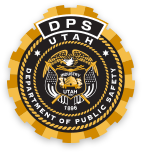Understanding Citations
Why does the Department of Public Safety and specifically the Utah Highway Patrol issue citations? Many people believe that it is a way of generating revenue. The fact is that DPS does not directly receive any of the revenue. So where does it go? Most of the funds go to the local municipality where the violation occurred. A small part goes to Peace Officer Standards and Training, which does indirectly benefit our organization. So if we are not “profiting” from the citations, why write them? The answer can be found in our mission statement; “To Provide a Safe and Secure Environment for All people in Utah”.
Drivers who do not obey the traffic laws do constitute a hazard for all of us who drive on the state’s highways. We can all agree that a person driving under the influence is a problem. Most of us agree that the person who darts in and out of traffic without signaling (improper lane changes) or someone who is so busy doing something in the vehicle (talking on a cell phone, putting on makeup, shaving, eating, disciplining kids, adjusting the the radio / cd player, the list goes on) and are not paying attention to what is going on outside the vehicle can be a hazard. Driving aggressively or simply being distracted while driving causes thousands of crashes each year. But what about those speeders, especially those who are speeding only “a little bit?” Have you ever wondered why there is a minimum speed on the interstate system? For a large number of motorists to travel together safely they must be traveling in a speed range that doesn’t create a large disparity in their relative speed.
What Does That Mean?
The driver traveling at 100 MPH must make an excessive number of lane changes to get around the rest of us obeying the speed limit. On the other end of the spectrum, the driver that only speeds “a little bit” is making too many lane changes and is increasing their risk of being involved in a crash, but more importantly, they are dramatically increasing the odds of serious injury to themselves or others in the event of a crash. The old adage “Speed Kills” is still true. Speed may not be the primary cause of a crash, but it almost always determines the outcome.
Being Stopped:
When you see the patrol car with its emergency lights on, move to the RIGHT and stop.(See Emergency Vehicle Approaching)
Try to stay calm. We know that receiving a citation is not the highlight of your day. If you want to explain to the trooper what you were doing or that you don’t believe you were in violation, do so as calmly as possible. The trooper will listen to what you have to say.
If you are cited, try to remain calm and listen to what the trooper is telling you. Remember that by signing the citation you ARE NOTadmitting guilt, it is just a promise to contact the court. If you don’t sign, state law does give the trooper the authority to place you under arrest and transport you to jail or to the court to post bail.
Remember that the trooper stopped you in an effort to correct a potentially dangerous driving behavior. It is not our intent to inconvenience you any more than necessary. When the trooper has finished, you are free to go. Please be extremely careful merging back into traffic.
Taking Care of the Citation:
The proper and easiest way to take care of the citation is to contact the court. The court contact information is printed on the citation. (See citation examples) If it is your intention to contest the citation, the court will let you know what your options are. It is very important that you contact the court within the fourteen days allotted. Failure to do so will result in a warrant being issued for your arrest. If a warrant is issued, the next time you have dealings with any DPS agency or any other police agency you could be arrested and transported to jail. DO NOT contact the Highway Patrol office to find out what the bail or fine amount is. We have no control over the cost of the citation. Only the court has the authority to set or reduce this amount. Also, DO NOT contact one of our offices asking for the citation to be amended to dismissed. Section 77-7-26 of the Utah code makes it a crime for any public official to “dispose of a notice to appear or any traffic citation without the consent of the magistrate.”
